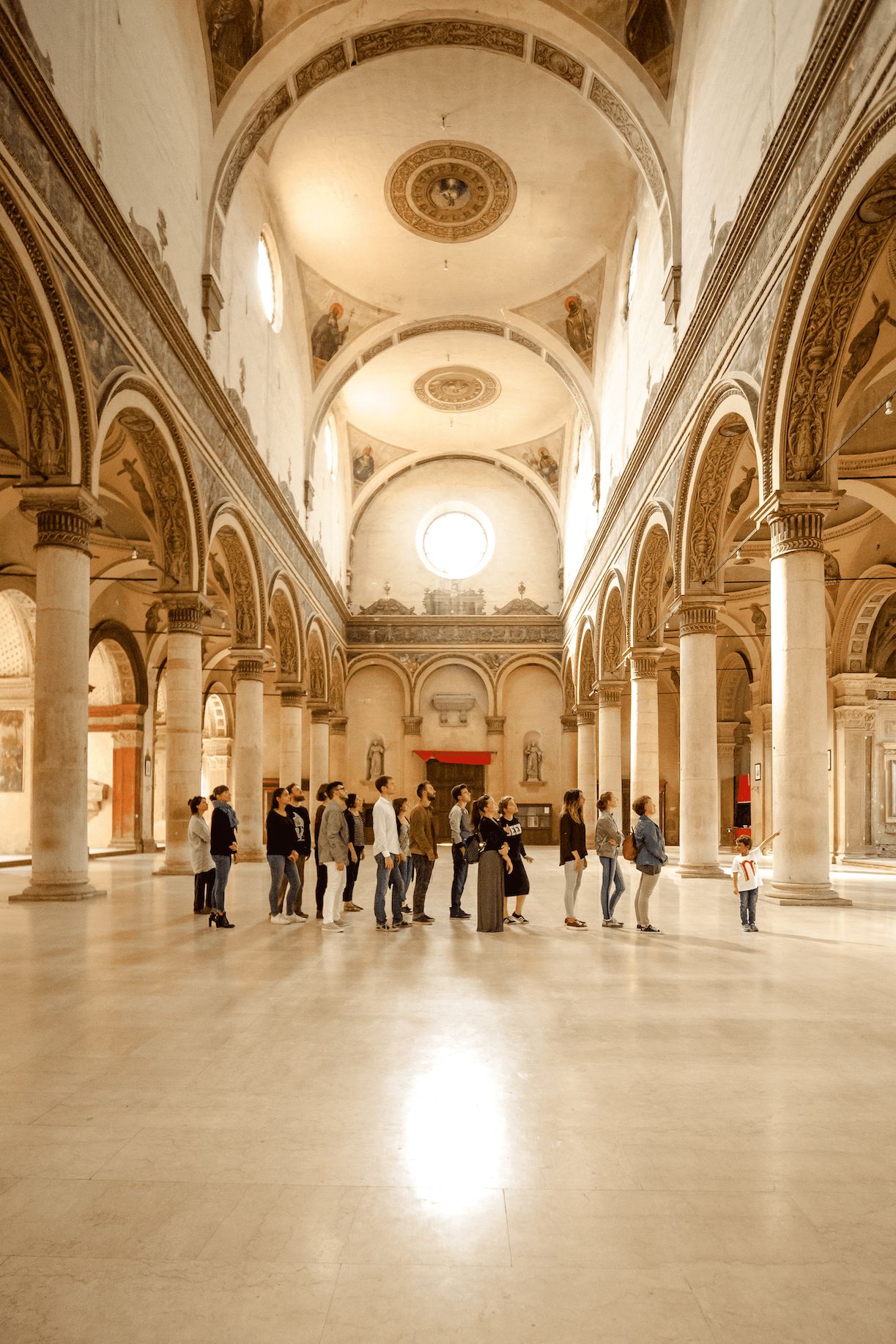Awero team
Monumenti Aperti: a festival throwing open the doors to history and learning
18 aug, 20:02
Monumenti Aperti: a festival throwing open the doors to history and learning
Created in 1997, Monumenti Aperti - or ‘Open Monuments’ - has grown from a small local initiative into a thriving and inclusive volunteer-led cultural project. And now, through innovative use of Open Badges and Cities of Learning, the festival is pioneering new ways to recognise the contributions and learning of its thousands of volunteers.
At its core, the festival and its year-round build-up is about opening up monuments to the public and giving people the chance to learn more about their history and heritage. Initially this focused on just one monument and five university students offering guided tours. Fast forward nearly three decades, and the event now spans 83 communities across 19 Italian regions, opening more than 800 monuments annually with the help of 19,000 volunteers.
Marco Cabitza is from organisers Imago Mundi, and he believes these volunteers are key to the festival’s success.
“The guided tours are made by people from schools and cultural associations,” he explains. “We’re not talking about professional tourist guides – we’re talking about students, young people; volunteers from the community.”
The festival attracts more than 200,000 visitors annually, but the heart of the project lies in the learning and civic engagement opportunities it offers to its volunteers - especially the young people who make it all possible.
Recognising volunteer learning with Open Badges
Monumenti Aperti’s exploration of Open Badges started small, initially offering volunteers badges to reflect how long they had been taking part. But over time, the system has evolved to better capture the richness of each volunteer’s experience.
“We now have four main badges,” explains Marco. “One for the guides who give the tours, one for inclusion - because we have a special project called Cultura Senza Barriere [Culture Without Barriers] - one for musical performances in monuments, and another for PCTO - training projects where students simulate work experience.”
These badges, issued through the Cities of Learning platform, allow volunteers to be recognised for a range of skills including things like learning Italian Sign Language (LIS). And for Imago Mundi, it's an opportunity to align their recognition practices with broader European values around non-formal learning, inclusion and digital innovation.
Alongside the digital credentials, volunteers also receive certificates, meaning they can both gain credits towards university and add information to more traditional printed portfolios. “Each volunteer can have the certificate of attendance,” explains Marco. “For us, it’s very important to generate that certificate through the platform - it's a very good feature.”

Spreading the word about Open Badges
Despite the benefits, introducing Open Badges hasn’t been without challenges. “It was difficult to explain to teachers what badges are, and to help them understand the opportunities they give to schools and volunteers,” Marco explains. That process involves Imago Mundi working closely with schools and teachers in the months-long run up to the festival itself, holding conversations about digital recognition as part of their everyday interactions with educators.
“Monumenti Aperti takes place on just one weekend a year,” Marco explains. “But we work on it from September to May, and every day we’re having calls. During that organisation phase we talk to them about Open Badges and the possibilities.”
Marco believes that by integrating conversations about Open Badges into ongoing collaborations, the team at imago Mundi is helping schools to see the long-term value of recognising non-formal learning in new, digitally portable ways. Marco knows that this won’t happen overnight, but is a long-term goal of the organisation. “We’re in the middle of a long process,” he admits.
Building a recognition ecosystem
As well as the benefits for volunteers, Marco believes that Open Badges can support a broader recognition network too, including universities, municipalities and other civic organisations. “I started to involve the University of Cagliari because they are a partner in Monumenti Aperti,” he explains. “It’s important to certify non-formal competencies, not only for us but also for the university.”
This upcoming collaboration will make it possible to gain endorsements for the badges issued by the festival, something which the Cities of Learning platform enables. “It’s a very interesting tool,” he says. “If I give an endorsement for the university’s badges, they can give one for mine.”
That future endorsement will not only strengthen relationships between Monumenti Aperti and the university, but will also mean volunteers can see which organisations recognise particular badges, adding to their value and appeal.
Marco also believes that by using Cities of Learning and Open Badges, the organisation’s credibility is enhanced when applying for national and EU project funding. “If we write in the project application that we use a modern, contemporary platform to certify volunteer competences, it shows we are aligned with European values. That’s very good for us,” he explains.
A festival which supports learning for life
The approach taken by Monumenti Aperti means that not only is the festival a celebration of Italy’s rich cultural heritage, but also provides a gateway to recognition of learning for thousands of volunteers.
From school students leading tours to musicians performing in ancient churches, the event demonstrates how non-formal learning can be valued and validated. As Marco puts it, “The impact is important for the volunteer - they can start a badge wallet in primary school and use it throughout their life.”
With a growing ecosystem of organisations and platforms working together, Monumenti Aperti is showing how cultural engagement can unlock doors - not just to monuments, but to a lifetime of learning.
Funded by the European Union. Views and opinions expressed are however those of the author(s) only and do not necessarily reflect those of the European Union or the European Education and Culture Executive Agency (EACEA). Neither the European Union nor EACEA can be held responsible for them.

Del:
Endre til annet språk:
